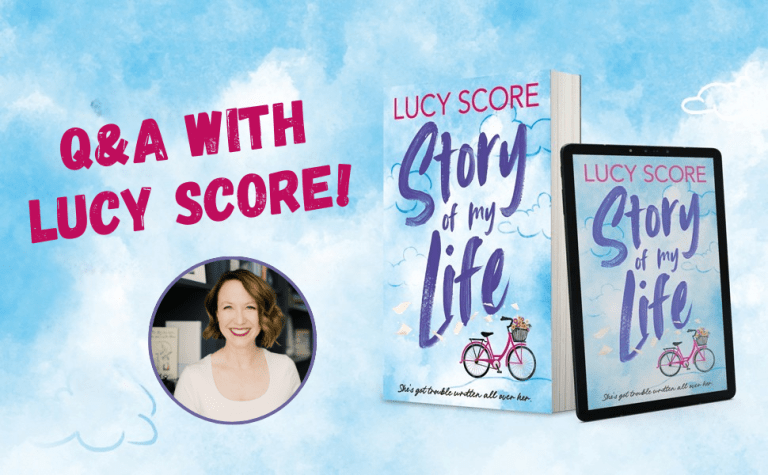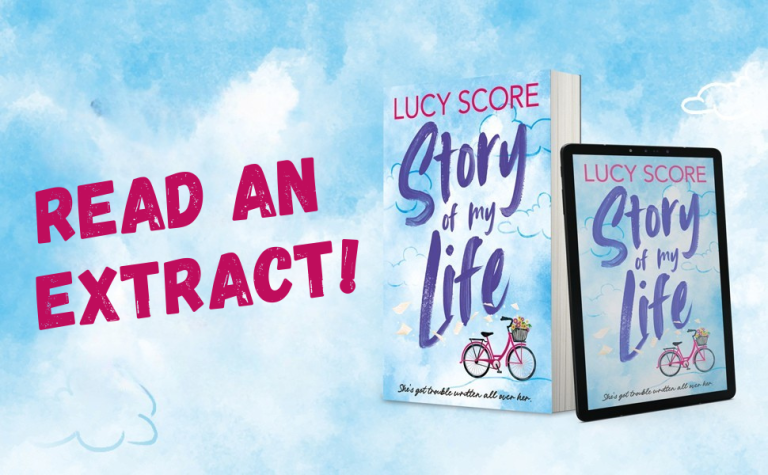My desert island books, ft. Chrissie Manby, Katie Marsh and Anne-Marie Casey
If you washed up on a desert island, which books would you want with you? Part of the Bookends Beach Party series.
Chrissie Manby, author of The Worst Case Scenario Cookery Club
How many am I allowed to have? There are so many great books out there. Juliet Ashton, Lucy Dillon and Alexandra Potter are always safe bets for the beach bag. May I take their entire works?
On last year’s hols, I read Carnevale by M R Lovric. This fantastic book charts the life of a fictional Venetian portrait painter, Cecilia Cornaro, through her love affairs with Casanova and Byron. It’s so beautifully written. I was utterly transported. I know I’ll return to Carnevale again and again.
Katie Marsh, author of This Beautiful Life
As a chatty soul a desert island is my idea of hell, so I think I would take Anne of Green Gables for comfort and vague tips on farming, I Capture the Castle because it’s my favourite book ever and I think Winnie the Pooh might sneak in to my bag too. Apart from that I would avoid taking thrillers, as I’d get too scared at night with all the looming shadows and rustling trees and I’d also need something practical – probably by Bear Grylls – to try to help me figure out how to stay alive until I’ve finished my amazing stick-boat (yep – my over-optimism strikes again), to get me the hell out of there.
Anne-Marie Casey, author of The Real Liddy James
The Girls’ Guide to Hunting and Fishing by Melissa Bank.
This is a very important book for me as it was the novel that inspired me to try and be a writer of fiction. The memory of how I felt when I read it, (the sense of emotional connection to the main character, Jane) and my admiration for the simplicity yet boldness of the structure gave me a model of what I sought to achieve.
Little Women and Good Wives by Louisa M Alcott
I came back to these books, which I adored as a child, in 2011, when I adapted them for the Gate Theatre and, of course, re-reading them as an adult, I felt an even stronger sense of why they have endured as iconic classics for so many generations of women. As an adult, and a working writer, I find Jo March’s struggle to provide for her family through her work inspirational, as well as her burning desire to marry for love and retain her independence of spirit, most unusual in the context of 19th century literature.
Heartburn by Nora Ephron
I always assume that everyone has read something by Nora Ephron, but if you’ve only seen the movies, get this book. It’s got everything; laugh out loud humour, intense emotional punch and recipes. I read a piece by Lena Dunham in which she said that Ephron “called bullshit on a whole host of things including…the idea that one’s writing isn’t fiction if it borrows from one’s life.” I couldn’t have put that better.
The Age of Innocence by Edith Wharton.
I was thinking about late 19th century novels when I was writing certain sections of my new novel and it was pleasure to go back and re-read several of Wharton’s. If you haven’t read any, I think this is the one to start with (although I have a huge affection for The House of Mirth). I was struck once again by two things about this novel; the emotional complexity of the characters and plot, and yet the readability. That is extremely hard to achieve, yet Wharton makes it seem effortless.
The Painted Veil by W Somerset Maugham
The first chapter of this book is like a master class in writing a gripping opening; the first time I read it I found it thrilling and I have tried to learn from its economy and drama. This story has got to be one of the best what ifs in fiction and although I am sure it is not widely considered the best of Maugham’s books, it’s my favourite.
Arlington Park by Rachel Cusk
I have long been an admirer of Rachel Cusk’s writing, but I pick out this book because I remember when I read it, at a time when my children were little and I was spending a lot of time at the school gates, admiring her decision to treat the domestic lives of women as a subject worthy of serious literary consideration.






